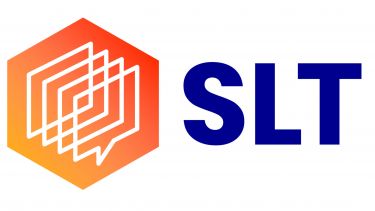- University of Sheffield will be one of 16 new Centres for Doctoral Training (CDTs) in Artificial Intelligence (AI) as part of £100m investment from UKRI
- Sheffield’s Centre will focus on speech and language technologies, addressing the current shortfall in demand for scientists and engineers with advanced training in this area
- Over £8 million pound investment for the University of Sheffield’s CDT funded by UKRI, the University and industry partners such as Google and Amazon
The UK has today (Thursday 21 February) received a major boost to advance its position in the global AI race, thanks to a £100m investment to train the next generation of artificial intelligence leaders, including the University of Sheffield’s new CDT. UK Research and Innovation (UKRI) is supporting 16 new Centres for Doctoral Training (CDTs) in artificial intelligence, to address the skills need within UK industry and the public sector.
The UKRI Centre for Doctoral Training in Speech and Language Technologies and their Applications, hosted at the University of Sheffield, aims to become a world-leading centre for training scientists and engineers in speech and language technologies (SLT), two core areas within artificial intelligence.
We are proud that the University of Sheffield has been chosen to host a centre for doctoral training that will combine our experience in training generations of inspired doctoral students with our track record of world-leading research. No SLT research training worldwide has the same breadth and depth, and exposure to real world problems that this centre will offer.
Professor Thomas Hain
Principal Investigator and Director of the CDT in Speech and Language Technologies and their Applications
A long-term goal of AI has been to create machines that can understand spoken and written human language, a capability that would enable spoken language interaction between humans and computers, and translation between all human languages.
The UK is not only the birthplace to the father of artificial intelligence, Alan Turing, but we are leading the way on work to ensure AI innovation has ethics at its core.
We want to keep up this momentum and cement our reputation as pioneers in AI. Working with world class academic institutions and industry we will be able to train the next generation of top-tier AI talent and maintain the UK’s reputation as a trailblazer in emerging technologies.
Jeremy Wright
Digital Secretary
The University of Sheffield has worked at the forefront of SLT for three decades and generated knowledge and defined best practise in automatic speech recognition, machine translation, text mining and social media analytics, speech perception and hearing research, and many other subject areas. The research groups have a very broad multidisciplinary expertise that is unique amongst UK researchers in this field.
AI is set to change the global economy significantly, with demand outstripping supply for highly skilled PhD graduates in this area. The University of Sheffield welcomes the government’s investment in AI and we are delighted that our long-standing expertise in this area is being called upon.
Professor Mike Hounslow
Vice-President and Head of the Faculty of Engineering
The CDT aims to train at least 60 PhD students in a wide range of SLT subjects, researching and developing robust methods for natural language and speech processing in challenging real world scenarios. This will stimulate novel applications of SLTs in sectors such as health, sport, manufacturing, aerospace, robotics, finance, political science and digital humanities.
For example, research projects may explore new methods to improve healthcare through assistive technologies, automatic analysis of social media for political abuse and the dissemination of fake news, new systems that can improve children’s reading and writing skills, better ways to engage with robots in factories, or help simplification of complicated documents.
Speech and language technologies are revolutionising how we interact with computers, giving us exciting new capabilities, summarising and analysing information in textual form from all areas of human activity and in all the world's languages. This CDT will train the research scientists and engineers to enable the UK to be at the forefront of this revolution.
Professor Rob Gaizauskas
Director of the CDT in Speech and Language Technologies and their Applications
The four-year training programme is designed to develop students’ professional skills and technical research experience, teaching them to foster interdisciplinary approaches, forge links with industry, and apply their learning to the real-world, developing their entrepreneurial skills. The CDT will pay particular attention to training students to be aware of ethical issues and concerns that arise in AI research in general and SLT research in particular.
A major part of the CDT involves close collaboration with industry, including multinationals such as Google, Amazon, Voicebase, Nuance, NHS Digital, Solvay and TechNation, as well as substantial UK SME support. They bring both insight and relevance to the students’ training and reduce the gap between academic theory and industrial practice. The industry partners will contribute through research projects, internships, teaching, advisory roles and outreach activities.
The Department of Computer Science has been building an international reputation for its research in speech and language technologies for more than 30 years. These technologies have now truly come of age, through the significant progress in personal digital assistants, such as Siri, Alexa and Cortana, and the rapidly increasing commercial uptake of speech and text analytics.
Professor Guy Brown
Head of the Department of Computer Science
Putting the UK at the forefront of the AI and data revolution is one of four grand challenges outlined in Government’s Industrial Strategy. It recognises the importance of developing the skills needed to meet demand in this area, attract investment in AI-related technologies, and drive economic growth.

